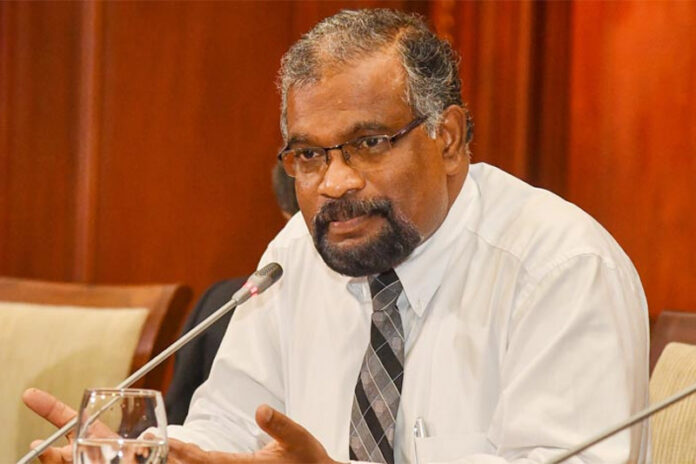LankaLeader : With Sri Lanka having officially exited sovereign default, Treasury secretary Mahinda Siriwardena emphasised the critical need to manage the economy with a cautious policy approach without sacrificing hard-earned economic stability.
On December 20, 2024, Sri Lanka achieved a significant milestone in its economic recovery by officially exiting sovereign default. This development was marked by Fitch Ratings upgrading the country’s long-term foreign-currency default rating from ‘restricted default’ (RD) to ‘CCC+’.
The journey to this point has been arduous, involving painful reforms and a complex debt restructuring process. Sri Lanka defaulted on its foreign debt in May 2022 amid high debt levels and low foreign exchange reserves, leading to severe shortages of essentials and a deep economic crisis.
The debt restructuring plan, approved by creditors, encompasses a $12.55 billion overhaul anticipated to save the country $9.5 billion in debt service payments over four years. This plan includes swapping defaulted bonds for new fixed-income instruments, with potential interest rate reductions tied to governance targets.
Siriwardana, also Secretary to the Ministry of Finance, expressed optimism about this development.
He tweeted yesterday, “Today marks a pivotal moment in Sri Lanka’s economic recovery as we officially exit sovereign default. This achievement reflects the resilience and commitment of our nation to overcome challenges and build a sustainable future.”
He also emphasised the critical need to manage the economy with a cautious policy approach without sacrificing hard-earned economic stability.
The International Monetary Fund (IMF) has been crucial in Sri Lanka’s recovery efforts. In March 2023, the IMF approved a $3 billion Extended Fund Facility (EFF) arrangement for Sri Lanka, providing an initial tranche of $330 million. This support was contingent upon the implementation of significant reforms, including major tax increases and debt restructuring, which, although widely unpopular, were deemed necessary to stabilise the economy.
The debt restructuring also involved negotiations with major creditors, including India, the Paris Club, and China. In November 2023, Sri Lanka reached an ‘agreement in principle’ with India and the Paris Club on debt treatment parameters aligned with the IMF’s EFF arrangement. However, China, the nation’s largest bilateral creditor, reached a separate agreement, restructuring $4.2 billion in debt. These negotiations were complex, with concerns about equitable treatment among creditors, but were essential for the country’s path to economic recovery.
Sri Lanka’s exit from sovereign default positions it as the fourth country to conclude a bond restructuring this year, joining Ghana, Ukraine, and Zambia. This achievement is expected to restore confidence among investors and international partners, potentially reopening access to global capital markets and attracting foreign investment.
Despite this progress, challenges remain. The country must continue implementing structural reforms to ensure economic stability and growth. The government has indicated plans to revitalise key economic sectors, support small to medium-sized enterprises (SMEs), and implement significant social and educational reforms to foster long-term financial resilience.
The public’s response to these developments has been mixed. While there is relief that the country is moving out of default, the reforms have led to increased living costs and economic hardships for many citizens. The government has acknowledged these challenges and emphasised the importance of the reforms for the country’s long-term financial health.
Sri Lanka anticipates a gradual economic upturn with a growth projection of 1.8% for 2024. This outlook reflects cautious optimism as the nation continues its efforts to recover from the severe economic downturn. The government’s commitment to implementing necessary reforms and the support from international partners are expected to play pivotal roles in this recovery process.
Sri Lanka’s exit from sovereign default marks a significant achievement in its ongoing economic recovery journey. While challenges persist, the nation’s resilience and commitment to reform provide a foundation for optimism about its financial future.
